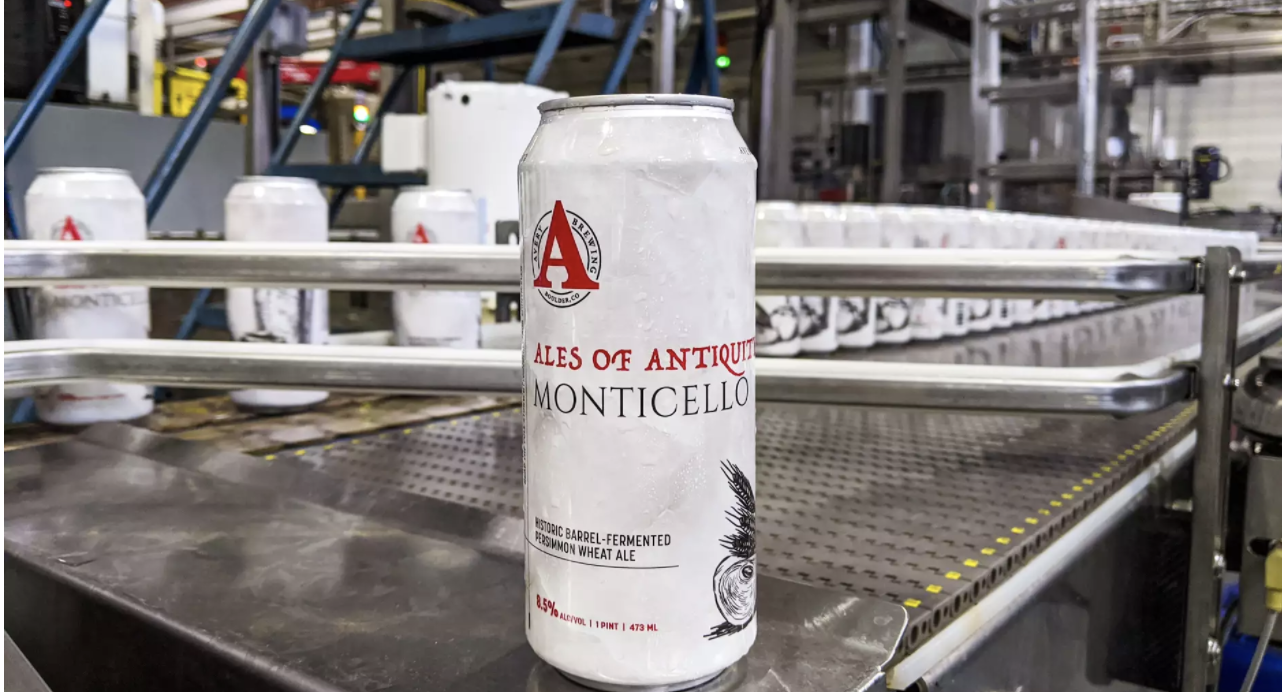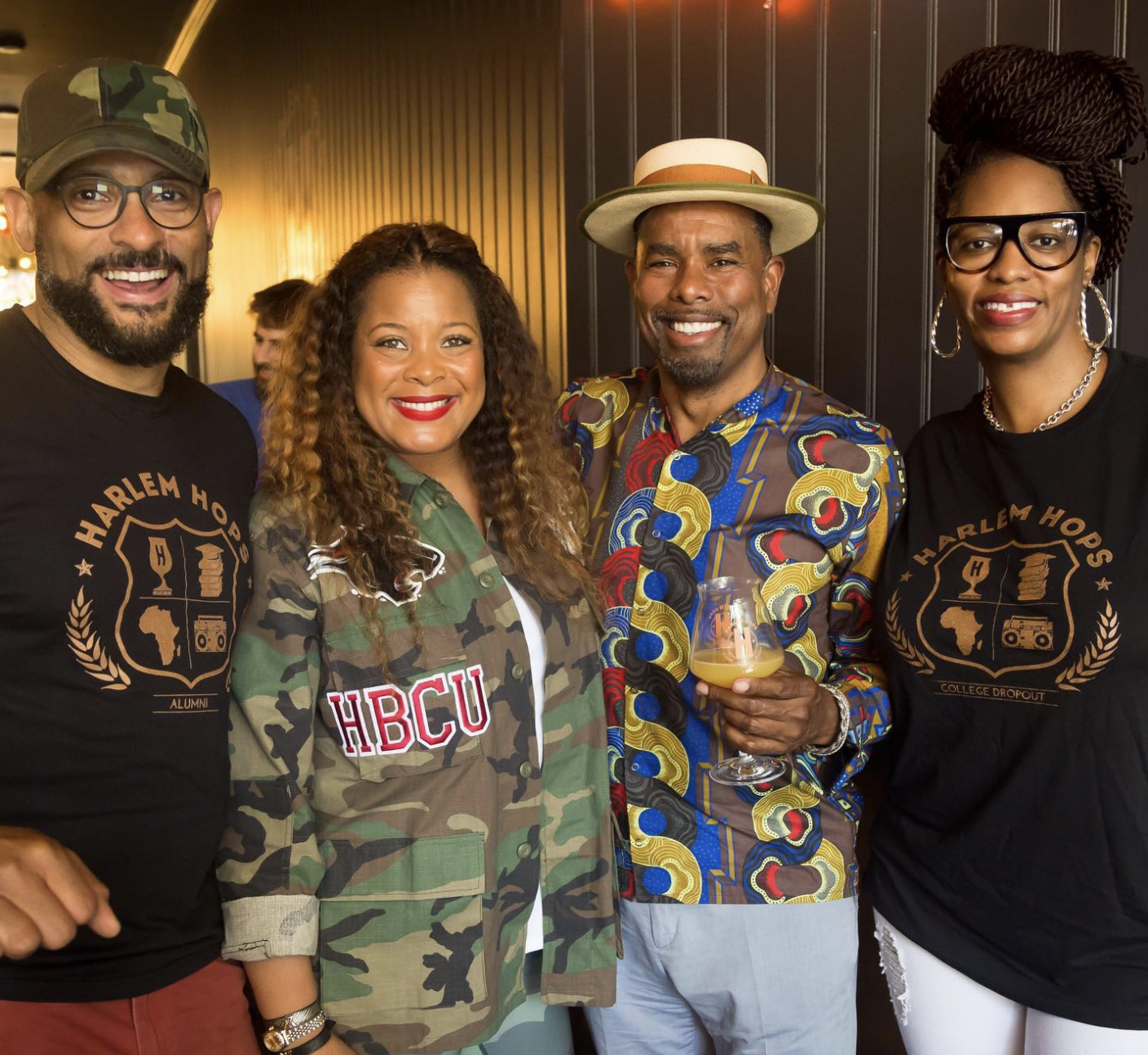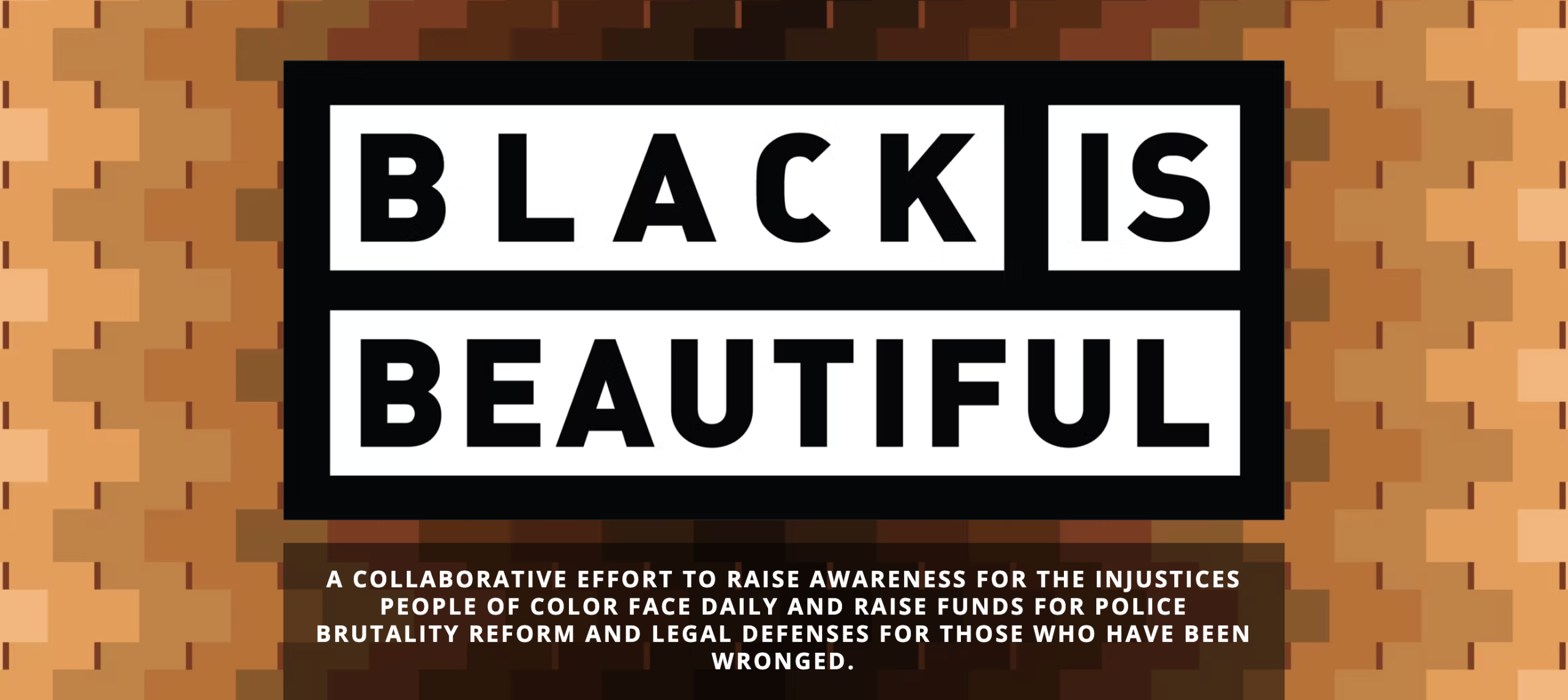Honoring Black History in Beer
Next time you’re appreciating a crafty pint, remember where brewing originated and share the knowledge with your friends. Cheers to Black History Month!
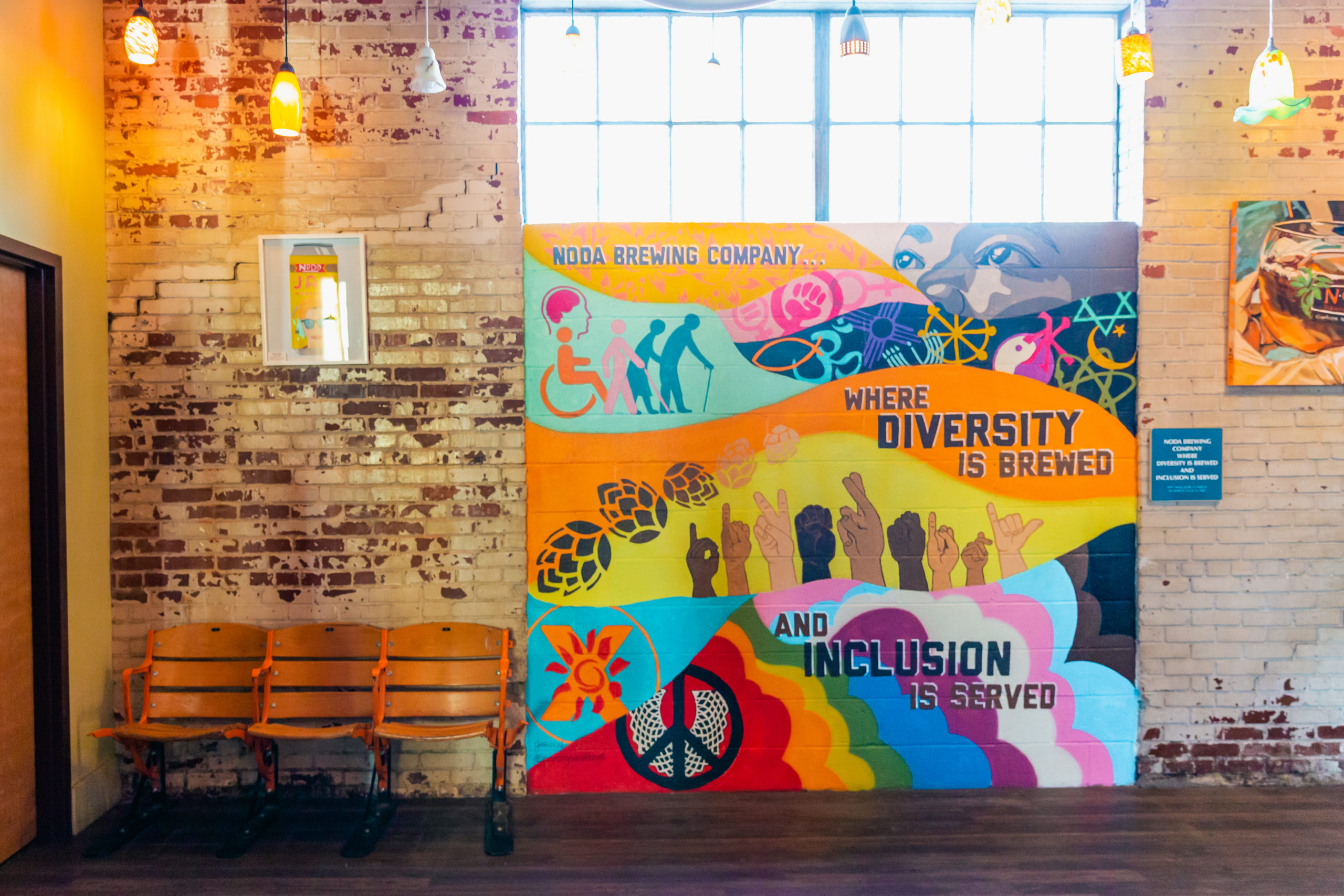
Sipping suds at our favorite local brewhouse is how a lot of us like to spend an afternoon with friends. But the beverage that’s known in White America today as a feel-good, community-building shareable has an under researched history of violence and racism.
In honor of Black History Month, we’re diving into where beer started, how it became the widely produced ABV-chasing giant that it is today, and highlighting some of our Black brewing friends that overcame—yet continue to have to battle some of—the barriers that the brewing industry has put in their way for centuries.
Where Brewing Began
PRE-COLONIAL WEST AFRICA
Beer did, and continues to, play a central role in West African religious and social practices. In fact, African American ancestors were largely fermenters. The production of liquor, beer, and wine is related to traditional spirituality in West Africa.
And these libations were shared only at significant social gatherings—weddings and funerals, for example—where alcohol was poured out and passed between elders. This ritual consumption may resonate with present-day black Americans, where they grew up seeing beer enjoyed at celebrations, but never at-the-ready anytime in the fridge.
PROOF?
If you’re surprised, archeological evidence proves this. The oldest industrial-scale brewery in the world was recently discovered in Egypt at a funerary site in North Abydos. This 5,000 year old structure is estimated to have been capable of producing 5,900 gallons of beer at one time. It housed 8 areas for beer production, each area containing 40 earthenware pots, where workers heated grains and water in vats held in place by clay levers.
This finding further suggests the use of beer in sacrificial rites, as the structure likely dates back to King Narmer who ruled Egypt around 3150 B.C. The ancient brewery was likely built specifically to supply royalty with beer for their spiritual ceremonies.
What Happened?
CLIMATE & IMPERIALISM
So how did beer and brewing come from spiritual West African ceremonies to being one of the largest beverage industries in America?
The Little Ice Age spanned from the early 14th century to the middle of the 19th, and cooled large regions of the world. In addition to eliminating Northern Europe’s ability to grow grapes, the Little Ice Age “ignited rapidly changing social, political, and philosophical movements across the world, fueling an age of exploration and the birth of capitalism.”
Europeans built boats, got rich on spices, and then murdered, stole from, and enslaved Africans. Many enslaved were fermenters, and Europeans took advantage of their brewing skills to keep the economy alive. Once word got out that West Africans were so well-versed in fermentation, advertisements and wanted posters of enslaved Black brewers were common in early America.
Thus the slave owners’ exploitation of the African peoples’ intellectual and manual efforts completely erased colored fingerprints from the history of beer.
One such enslaved African and American craft pioneer, Peter Hemings, is finally getting the credit he deserves for being the brewmaster at Monticello, Thomas Jefferson’s plantation. Monticello was known for its delicious brews, but Jefferson never recognized Hemings as the talented chef and brewer he was. Avery Brewing in Boulder chose to honor his story with a limited release called Monticello, shedding light on the faceless legacy for his involvement in the foundation of the brewing industry.
Avery Brewing released the Monticello in 2020, a reproduction of Peter Hemmings’ beer. Image courtesy of Avery Brewing Company, an Arryved customer.
19TH CENTURY AMERICA
There were 3 big pieces playing a part in what happened next:
- Prohibition: The North was known for being anti-slavery and anti-alcohol, which began the assumption that Black America was anti-alcohol, too. After all, they’re of course going to side with the whites that are saying they shouldn’t be slaves, right?
- Immigration: As Germans, Irish, and other Europeans began to populate America, they took over the beer trade and dramatically changed how it was made and consumed.
- Segregation: Saloons were intentionally segregated gathering places where Black Americans weren’t welcome.
“Black people’s attitude toward alcohol in the 1800s was not ideological. It was strictly pragmatic,” said H. Paul Thompson, history department chair at North Greenville University. The skewed narrative here was that Black America didn’t want any part of beer culture, when really, they were just entirely excluded from it.
BREWING POST-PROHIBITION
As breweries began to re-open after Prohibition was repealed, they were treading lightly. Big name brewers like Miller and Anheuser-Busch rebranded themselves as definitively patriotic and “American”—i.e. white.
The White Flight to suburbs caused a cocktail craze to emerge, too. To compete with spirits, beer companies began making higher ABV brews. This saw the emergence of new glassware, too—coupes, wine glasses, and other stemmed glasses to portray this “classier” version of beer.
These supposedly upscale high ABV beers were marketed to White America, and large bottles of malt liquor were advertised to Black America. Colt 45 famously used Lando Calrissian on their bottles, and the malt liquor brand later employed the musicians Snoop Dogg, Dr. Dre, and Ice Cube as faces of their brand in the ‘90s.
In the ‘80s, malt liquor was portrayed as a symbol of Black community decay, driving the false narrative that Black people were incapable of moderating liquor consumption. Black people reacted by halting their malt liquor consumption in order to achieve social mobility. Heineken was one of the few brews that Black Americans still enjoyed, because it was known as a more sophisticated brew. This, and spirits like Hennessy, became products of Black cosmopolitanism.
Harlem Hops Founders along with Garrett Oliver, Brew Master of Brooklyn Brewery. Image courtesy of Harlem Hops.
Reclaiming Craft
“We’re reclaiming beer because it’s ours,” said Kim Harris. Harris, with fellow HBCU graduates Stacey Lee and Kevin Bradford, opened Harlem Hops in 2018, which is a craft brew bar on a mission to reorient the relationship between beer and Black America.
And we’ve got a ways to go. Industry data shows that Black Americans represent 12% of US beer drinkers, and only 1% of all breweries are Black-owned.
Unfortunately, there is no quick fix to increasing diversity in brewing. For starters, we can celebrate the Black-led breweries that exist, and support them with our dollars whenever we’re in town. Below are some friends we’d recommend a brew or 2 from:
MONTCLAIR BREWERY
Nestled in a tight knit community in the North East corner of New Jersey is Montclair, and the sole brewery in the township, Montclair Brewery. Husband and wife duo, Leo and Denise, opened Montclair’s doors in 2018, with hopes to make a business out of Leo’s basement brewing passion and Denise’s business expertise.
Leo hails from West Africa and loves telling stories with the beer he brews. Their Baobiere Golden Ale, for example, is made with the citrus fruit from the baobab tree, known as the African tree of life. Leo also recently won the title of Discovery Channel’s “Moonshiners: Master Distiller” for his baobab brandy!
Denise’s Jamaican roots are also celebrated in their suds, with Bartons Bush Coconut Stout. The brew is named after Bartons, Jamaica and packed with coconut, just as the namesake city is.
The pair also tells other Black stories through their beer. They brewed the Doby Major Leagues Caramel Pale Ale, named after the first African-American baseball player in the American League, Larry Doby. Tubman Railroad Strawberry Ale was also on tap in an ode to Harriet Tubman, careful to use her favorite fruit and a lower ABV because of her known smaller frame.
Drop in for a pint, a story about Leo’s mother and other women brewing beer in West Africa, and some reggae!
ATLANTUCKY BREWING
This Atlanta-based brewery is new to the scene—they open on February 4, 2022! The influential Southern hip hop group, Nappy Roots, was on an American beer tour in 2019, starting on the west coast and making their way to Colorado. In addition to playing shows, the group stopped at breweries along the way and learned about different styles of beer. Thus came the idea to begin their own brewhouse!
The group is getting crafty with their flavors and the stories they’re telling behind them. Watermelon Chiquen & Gritz is a light golden ale and a play on words with some of the group’s favorite home cooking, and the collaboration brew Kentucky Mud Chocolate Stout is a nitro chocolate milk stout celebrating their home state.
Crack a cold one and turn up “Good Day” real loud.
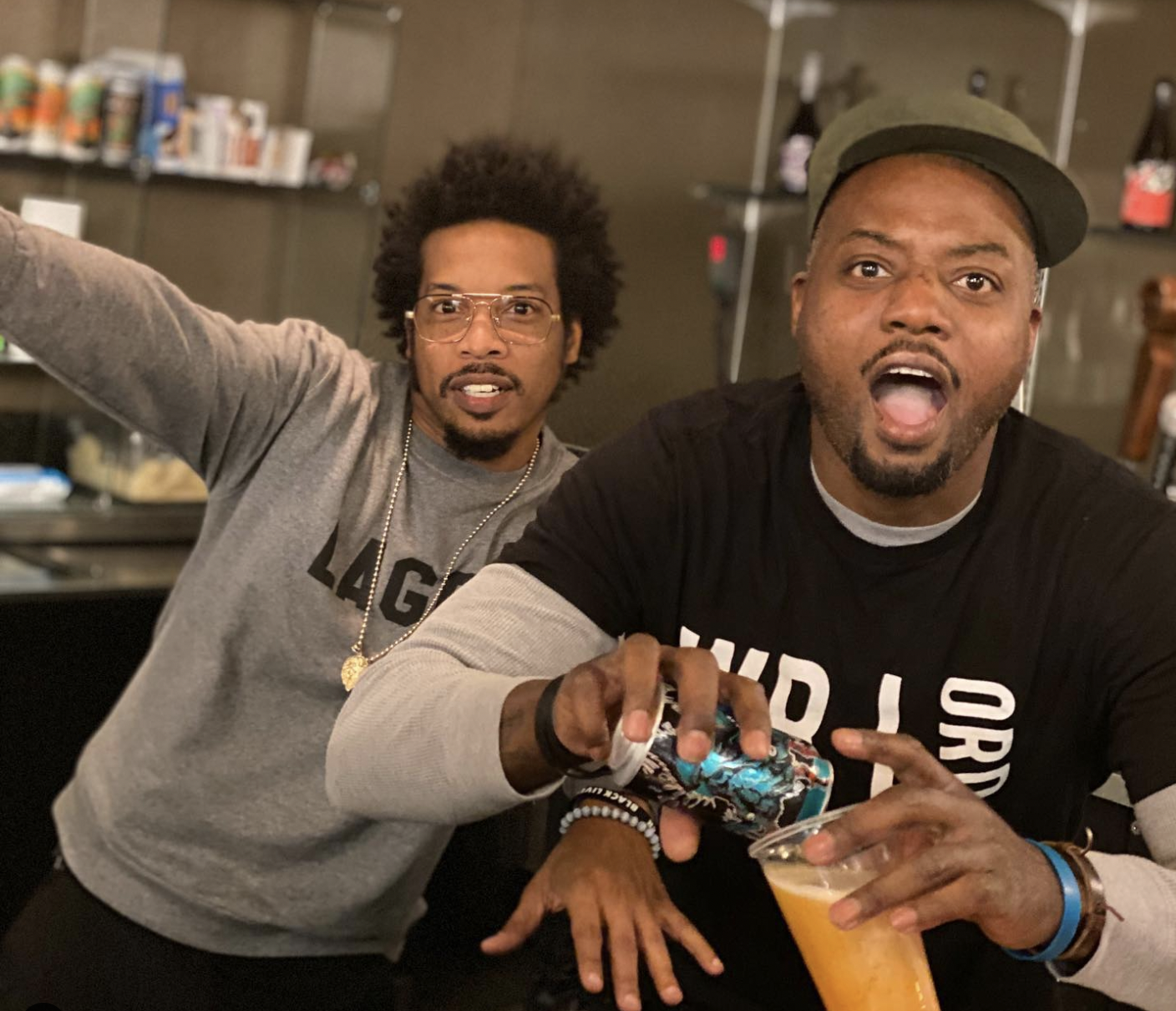
Nappy Roots’ very own Skinny and Scales, owners and beer gurus of ATLantucky. Image courtesy of ATLantucky, an Arryved customer.
HARLEM BREWING COMPANY
Since the ‘90s, Celeste Beatty has been disrupting the brewing industry as a pioneer for both Black people and women in beer. Harlem Brewing Co. was founded in 2000 and Celeste was the first Black woman to own a brewery in the US. Since opening, she’s established 3 flagship brews in the New York beer scene: Sugar Hill Golden Ale, Renaissance Wit, and 125 IPA.
She credits Harlem and ancient African traditions for inspiring the ingredients of her brews, and packs each pint with flavors that celebrate Black culture and heritage. She’s expanded to a sister brewpub in North Carolina, and aims to educate guests and push for community equity in brewpubs going forward.
BROOKLYN BREWING
James Beard Award winner Garret Oliver has been leading Brooklyn Brewing since its start. He’s arguably the best brewmaster in the world and has spent almost fifty years in the craft beer world, fascinating beer enthusiasts with his unique approach to the art of brewing. Garret is likely the reason Brooklyn Brewing is such an international icon, and he’s also paving the way for others like him.
Non-liquid accolades for Garret include the book The Oxford Companion to Beer and the organization The Michael James Jackson Foundation for Brewing & Distilling whose goal is to diversify the beer and spirits world.
WEATHERED SOULS BREWING CO.
This San Antonio brewery is known for its 2020 creation of the Black Is Beautiful initiative, which continues to raise awareness about the inequalities and injustices of the Black community. Co-founder and head brewer Markus Baskerville thought of the idea that was initially supposed to be a single beer release, but it spurred nearly 1,200 breweries from around the world to participate. Weathered Souls released an oatmeal stout recipe for all participating locations—homebrewers, too—and encouraged profits to be donated to organizations fighting racism, police brutality, and providing legal defense to those who can’t afford it.
When Baskerville and team aren’t making strides to positively impact their community and others’, they’re brewing deep stouts and drool-worthy IPAs.
Black is Beautiful website header.
THE LIST GOES ON
Don’t stop there! Here are a few more Black-owned and Black-led breweries whipping up tasty brews and building community:
- 67 Degrees Brewing (MA): This microbrewery flexes their creativity and variety of backgrounds to put a fun spin on classic beer styles.
- Dirtbag Ales (NC): Tito, a US army veteran, took his home brewing passion and a few great friends to create a beer business all about breaking the status quo and following your own path.
- Wah Gwaan Brewing Co. (CO): As a first-generation Jamaican-American, co-owner Harsha’s desire to reconnect with her roots drove her to create a business with vibrant flavored brews, sustainable practices, and a place to share authentic Jamaican culture through education and events.
- Crowns & Hops Brewing Co. (CA): This family friendly brewery is dedicated to building community with underserved groups, promoting diversity and inclusion, and expanding the average drinker’s palate with world-class beer.
- Green Bench Brewing Co. (FL): Head brewer and co-owner Khris used his advanced recipe development and creative brand vision to build a brewery focussed on experimentation and using fresh, local ingredients.
Next time you’re appreciating a crafty pint, remember where brewing originated and share the knowledge with your friends. Cheers to Black History Month!

